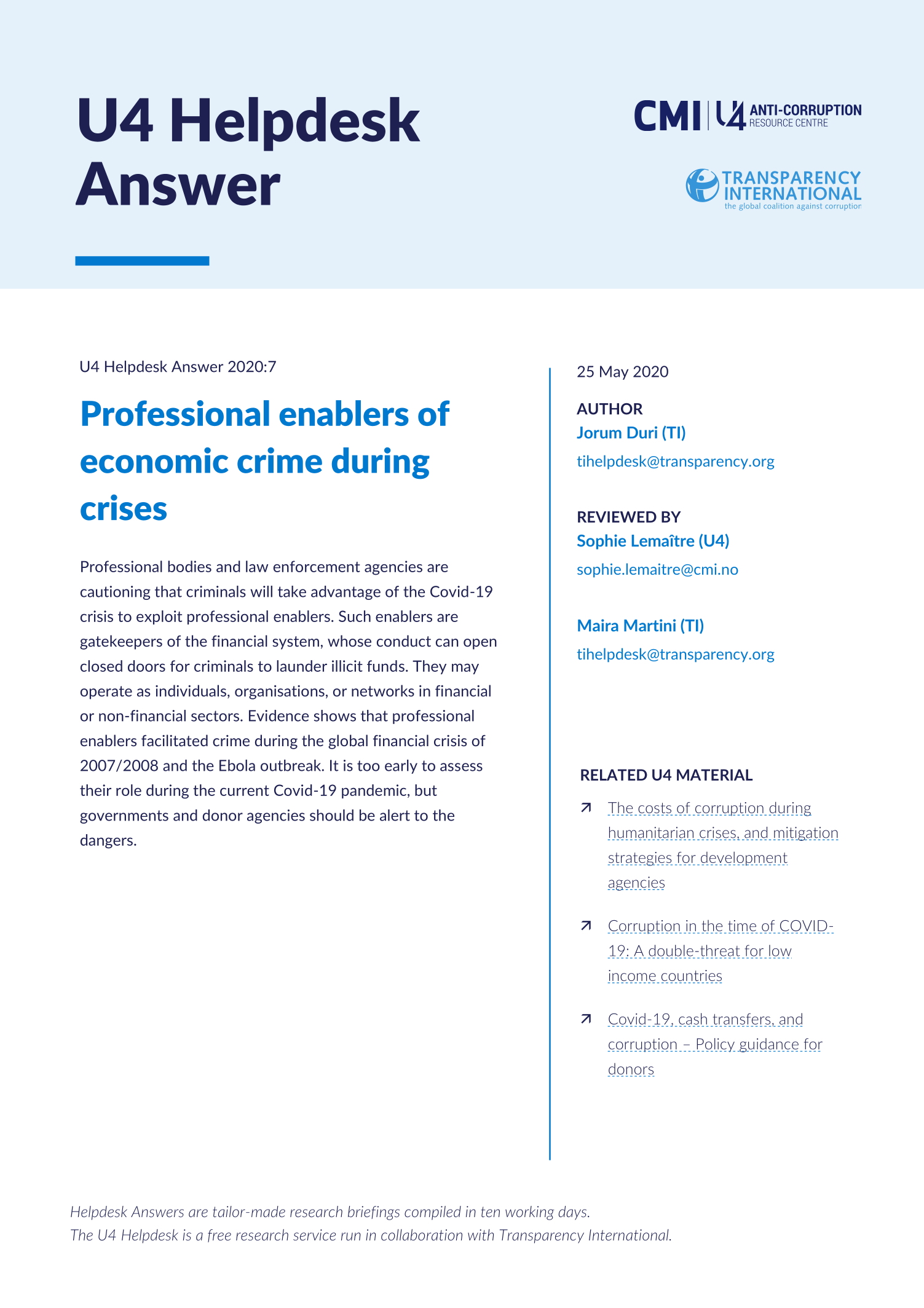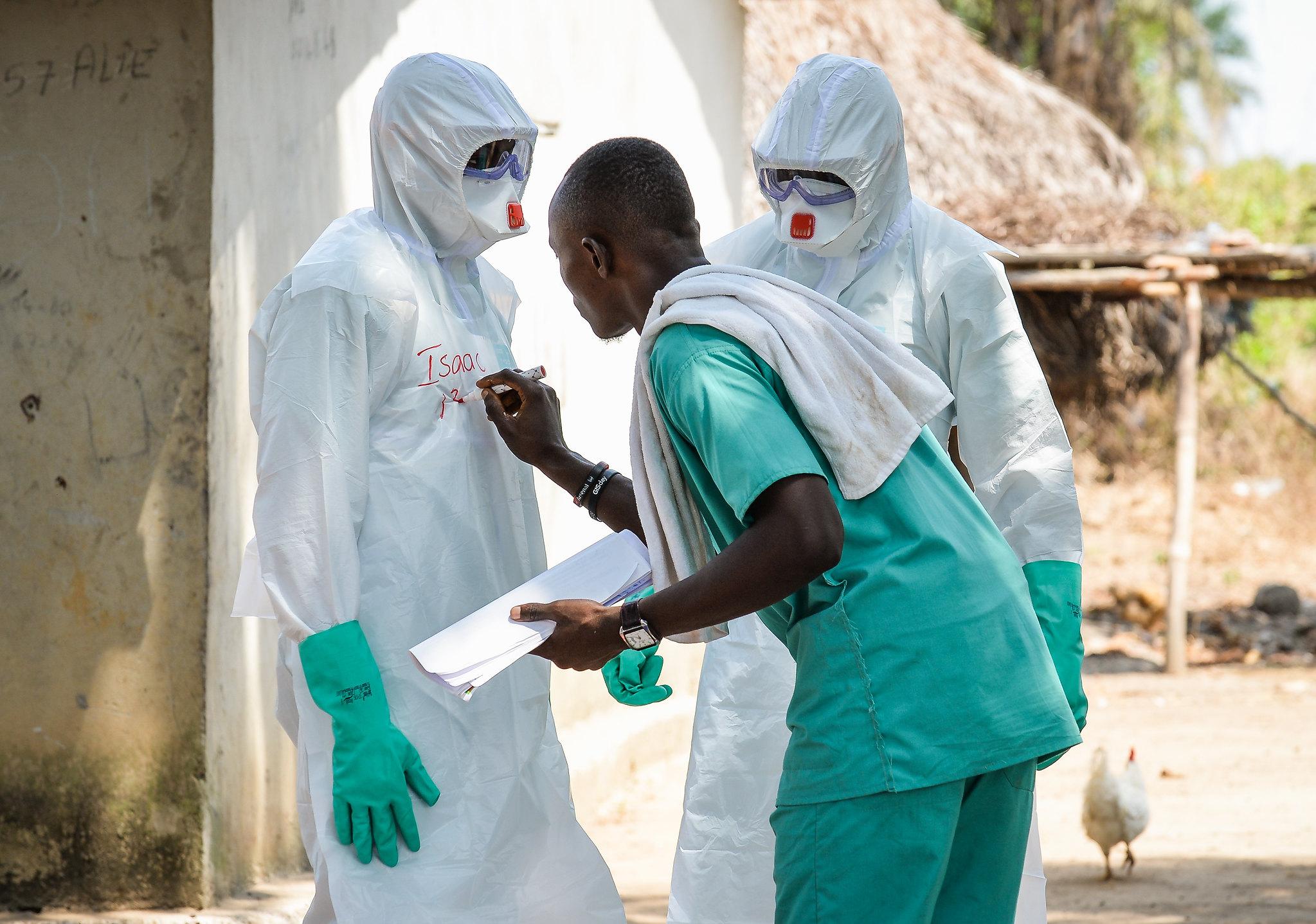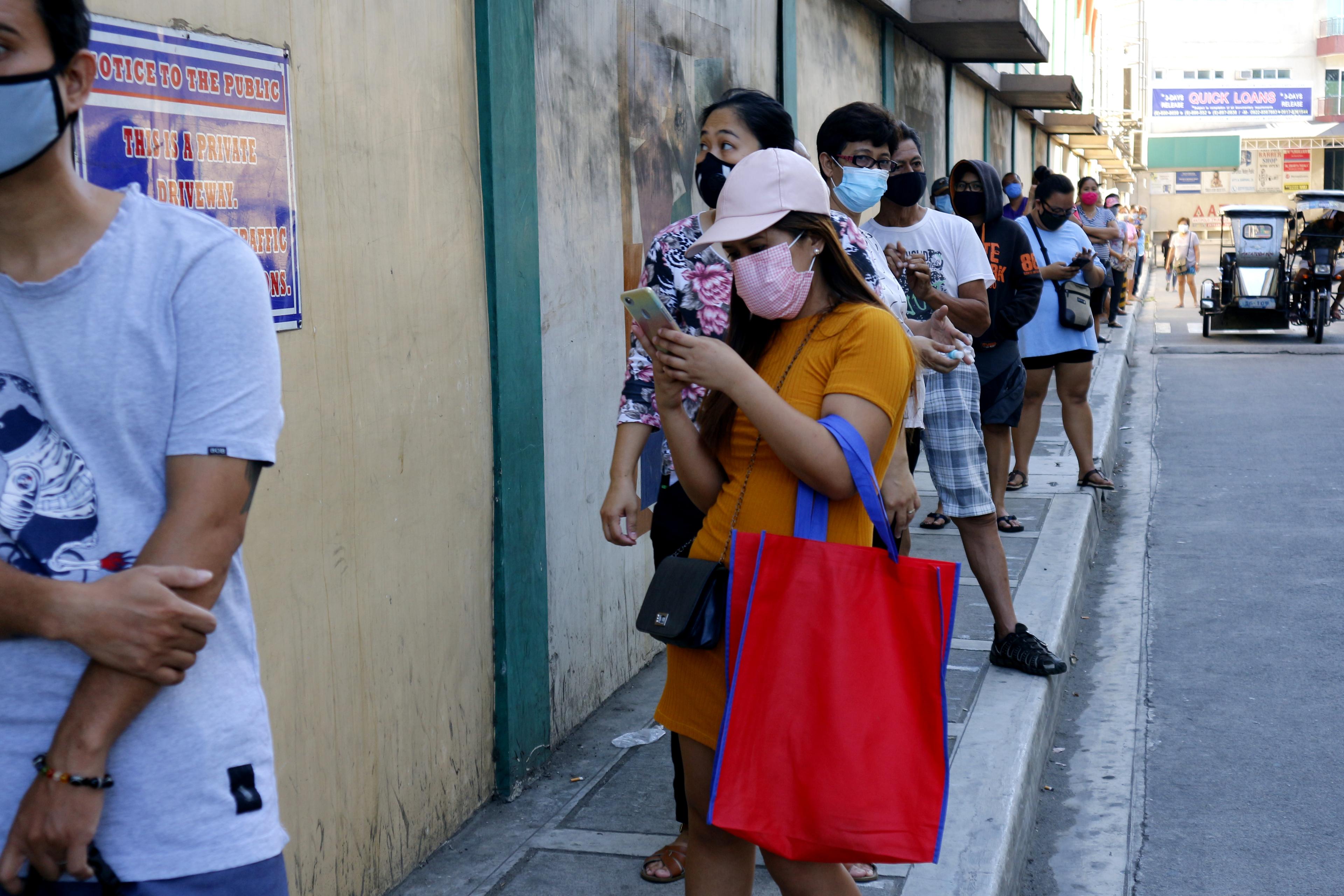Main points
- Proceeds from drug trafficking rescued banks from collapsing during the 2008 financial crisis. The former head of the United Nations Office on Drugs and Crime estimated that approximately US$352 billion in drug proceeds was laundered through banks.
- Evidence shows that funds disbursed in previous humanitarian crises such as the Ebola crisis were lost through corruption and laundered with the help of professional enablers.
- The COVID-19 pandemic presents features which exacerbate corrupt individuals and criminal groups to move and conceal proceeds of crime through professional enablers.
- Europol and the FATF have cautioned the potential abuse of professional enablers by criminals to launder their proceeds of crime during and after COVID-19.



